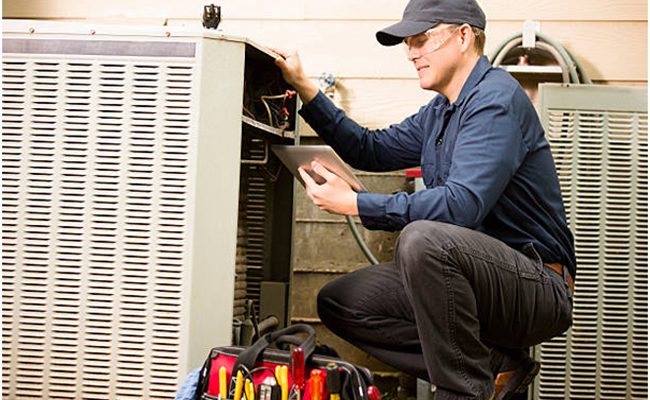
It’s hot outside. I know I’m breaking exactly zero new ground with that observation, but it genuinely bears repeating: it is beastly hot outside. As I write this very article the temperature outside is in the low nineties, and I’m writing this at the beginning of Spring. I’ve been a resident of Colonial Heights since I was a teenager, and I’m intimately familiar with how crazy the temperature variance can be here. I’m not looking forward to how brutal the summer is going to be, especially since every year since (year) has been the subsequent hottest year on record for global temperatures.
Once upon a time, air conditioning was a luxury. Today, it is a necessity. Rising temperatures are starting to have a massive impact on the world at large, and it doesn’t look like the trend of the thermostat reading higher and higher numbers is going to change any time soon. You absolutely need to stay on top of your air conditioning, keeping it in good repair and well maintained. Even the World Health Organization recommends keeping your house as cool as possible! In this article we’ll explore some of the health problems that can arise from being exposed to too much heat for a prolonged period of time.
Dehydration
This is the most common danger from long-term exposure to high temperatures. As our bodies heat up, they sweat. Sweat evaporates from the body, releasing some of that heat, but in high enough temperatures it may not be enough to offset the effects of being hot. The more we sweat the more water we lose, and that can rapidly lead to dehydration. We lose electrolytes and salt through our sweat as well, which is what gives it that telltale salty taste. When our body temperatures rise faster than our sweat system can cool us, and when we don’t have any means to replace those lost electrolytes, we dehydrate.
Symptoms of dehydration brought on by extreme conditions are severe and dangerous. Left untreated, it can lead to a condition called heat exhaustion, which comes with a myriad of major health problems. Symptoms can include the classics like nausea, vomiting, dizziness, irregular heartbeat, and trouble breathing. Treatment is thankfully simple: get to somewhere cool and get some water (or, ideally, a sugar-free electrolyte rich sport drink) in you as soon as possible. While drinking something can and will help, getting out of the heat is just as vital, as prolonged exposure to high temperatures will just repeat the problem.
Heat Cramps
Another risk of exposure to dangerously high levels of heat are the dreaded muscle cramps. This can also happen as a result of dehydration, and is marked by painful, involuntary muscle spasms. Your muscles will lock in place and activate uncontrollably, which can be deadly in and of itself depending on what you’re doing when it hits. Normally, this happens when doing rigorous exercise or strenuous work when things are hot, but with higher levels of hotness happening as a baseline, the risk is exponentially higher regardless of what you’re doing.
As with dehydration, the key is to remove yourself from the situation and into cooler environments and to drink something to replace lost electrolytes. That’s what causes the muscle spasms in the first place: loss of minerals like potassium, sodium, and other vital elements. Electrolytes facilitate communication between your nervous system and your muscles, and without them that communication breaks down. This doesn’t just shut down your muscles, it causes them to behave erratically. Cramps are basically your muscles screaming in agony, and extreme heat only makes that worse.
Heat Stroke

This is the most dangerous risk you face from extreme heat. It can be directly lethal, as it causes the body to shut down completely. The body can no longer regulate its own temperature, and a runaway chain of events starts taking place. Your thoughts become wild and erratic as your brain overheats. You experience dizziness and shock-like symptoms. You may experience seizures as your nervous system starts breaking down the mechanisms by which it controls the rest of your body, including automatic functions like breathing and heartbeat. You will experience fever, raising your body temperature as high as 106 degrees Fahrenheit in as little as ten minutes. Left untreated, this condition can lead to permanent brain damage, disability, or even death.
Keeping your home’s air conditioning at full operating capacity is vital. I personally have the folks at https://www.airmaxxac.com perform regular maintenance on my HVAC system, which has been a godsend during the more brutal days of summer. We are at a higher risk than ever for exposure to these health problems due to rising global temperatures. This summer will be hotter than any summer before it, and the next one even hotter.
Leave a Reply